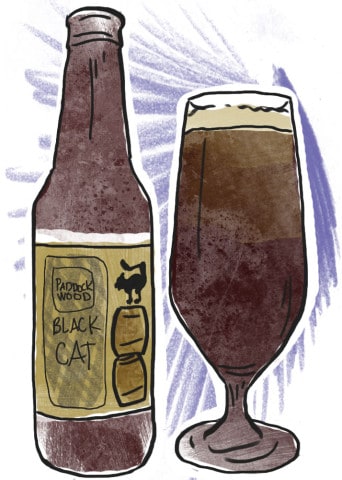BRADEN HURSH
 The dominance of mass-produced alcohol in Saskatoon, and Saskatchewan as a whole, is beginning to shift as the population starts to show more of an interest in diversifying their drinking habits.
The dominance of mass-produced alcohol in Saskatoon, and Saskatchewan as a whole, is beginning to shift as the population starts to show more of an interest in diversifying their drinking habits.
A growing market of local astute and adventurous breweries and distilleries are slowly but surely changing the current homogenous nature of the beer, liquor and wine consumed in our city. The drinkers of Saskatoon are maturing from their high school days of Molson Canadian, Kokanee and Pilsner and moving towards true India Pale Ales, porters, stouts and small-batch vodka, gin and whiskey.
The typical drinker will order beer and alcohol in descending order of what product is most heavily advertised. It is a true testament to the power of advertising when a customer walks into the pub where I bartend and asks first for a bottle of Bud and then — after being told the bar doesn’t serve Budweiser products — requests a Bud Light instead.
That customer will usually walk away with a bottle of Kokanee, slightly disgruntled about the lack of beer that all tastes basically the same. These macro-breweries rely more on their powerhouse advertising than the actual quality of their product. The beer bottle’s label may change colour based on temperature, but being “glacier-cold” might just numb your tongue to the actual taste.
Over the next three weeks I will be highlighting some local companies devoted to broadening the spectrum of delicious, local, affordable and unique alcohol. This week the focus will be on the Paddock Wood Brewing Company.
The origin of Paddock Wood occurred serendipitously. Founder Steve Cavan was teaching at the University of Saskatchewan when he realized there was no craft beer in the city, Cavan decided to go to the library and learn how to make it for himself and his wife — so basically, Paddock Wood began as a beer kit supply store run out of Cavan’s basement in 1995. In 2000, it shifted to a retail store specializing in custom beer kits. Three years later the Canadian Revenue Agency gave Paddock Wood a bit of a surprise.
“In 2003, the CRA nicely pointed out that making kits was illegal without a permit and the permit covered being a brewery, so we just became a brewery,” Cavan said.
From an illegal basement operation to a fully licensed brewery, Paddock Wood entered the local beer market in full in 2005. Over the next seven years the market was small and there was initial resistance to certain styles and flavours, but in 2012 the market suddenly exploded and everyone seemed to be aware of craft beer.
In cities like Portland, Or., craft beer accounts for 50 per cent of the beer consumed. In Saskatoon, Cavan estimates that number to be less than five per cent — meaning that there is a large amount of room to grow for both established craft breweries and new early-stage breweries.
Some of the public resistance to Paddock Wood and other craft beer lies in the ingrained assumption that all beer should taste alike. If one were to have a blind taste-test of Kokanee, Canadian, Pilsner, Alexander Keith’s and Great Western Original 16, the test subject would likely have an extremely difficult time differentiating one from the other and an even harder time assigning the sample to the corresponding brand. Because of this, a first time craft beer drinker may be initially surprised by the diversity and difference between what they are trying and what they are accustomed to.
“I often tell people who have only consumed the commercial [beer] to think of this as a different beverage [and] evaluate it on its own terms, not to a standard set by the macro producers. People are usually surprised by the range of flavours and if they expect something bland and watery as the ideal form, they are disappointed,” Cavan said. “But if they are open to tasting malt or hops or the myriad of subtle flavours found in a range of craft beers, the response is often positive.”
For Paddock Wood, the diversity of flavour is found in the simplicity of their ingredients coupled with the various brewing techniques they use to arrive at various types of beer. Paddock Wood only uses malted barley, hops, water and yeast, while the macro-breweries can use up to 106 chemical ingredients.
Paddock Wood’s exceptional beer is served most regularly at Calories, the Woods Alehouse, Amigos and Louis’ Pub. Six varieties of Paddock Wood can be purchased at the Saskatchewan Liquor and Gaming Association and all 20 varieties can be bought directly from the brewery.
—
Graphic: Stephanie Mah/Graphics Editor
Leave a Reply